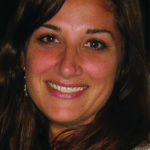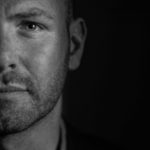“I Was Just Flabbergasted.” Discovering Cambridge Analytica.
One evening during the 2016 presidential primaries, Sam Woolley wandered into a small meet-up on digital political messaging in the basement of a New York City tech store. At the gathering, he says, a group of experts boasted of an uncanny ability to influence voters on social media. The name of their company was Cambridge Analytica.
For Woolley, a leading researcher on online political manipulation, the meeting was a revelation. The Cambridge Analytica employees “opened up their playbook,” he recalled in an interview with FRONTLINE earlier this month. “I was just flabbergasted.”
“They were a firm that at the time no one really knew about but that later went on to work for Trump,” Woolley said. “[They] claimed that they could use psychographic marketing, so manipulation of people’s psyche with individual targeting to massively affect how people thought, felt and reacted to the election.”
At the meet-up, Woolley says a Cambridge Analytica employee said that the firm’s parent company “worked for politicians and regimes around the world, including multiple authoritarian regimes, in an attempt to spread information or a lack thereof around these pivotal events.”
Cambridge Analytica has been accused of furtively collecting personal data from millions of Facebook users to create voter profiles before the 2016 elections. The firm was working for Sen. Ted Cruz (R-Texas) when Woolley was introduced to the group, but it was later hired by the Trump campaign. Trump’s former chief strategist, Steve Bannon, was a former Cambridge Analytica executive.
Cambridge Analytica has denied using Facebook data in the election and has defended its business practices. The firm’s website says that the company provides candidates “with the data and insights necessary to drive your voters to the polls and win your campaign. We offer a proven combination of predictive analytics, behavioral sciences and data-driven ad tech.”
Woolley was interviewed by FRONTLINE as part of an ongoing investigation into the influence of social media platforms. He is a co-founder and former research director of the Computational Propaganda research team at the University of Oxford and the University of Washington. He is currently a research director at the Institute for the Future in Palo Alto, California.






